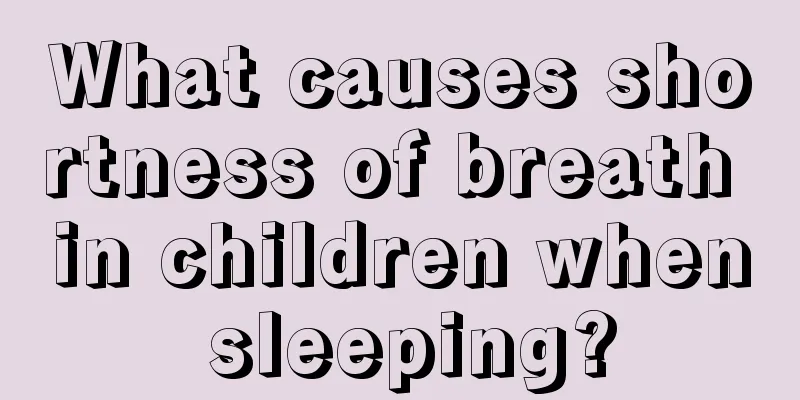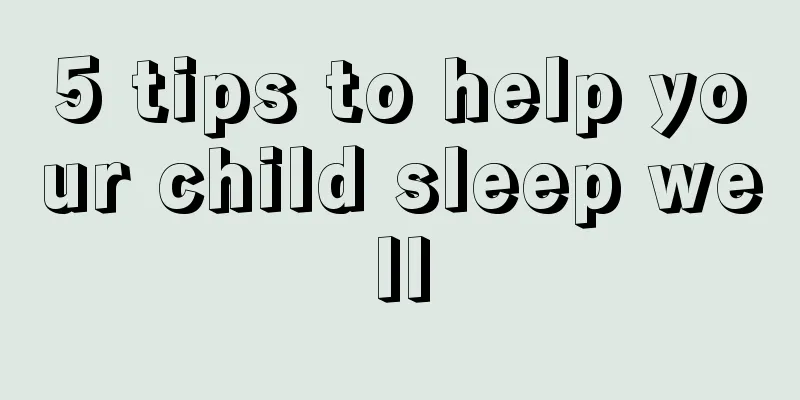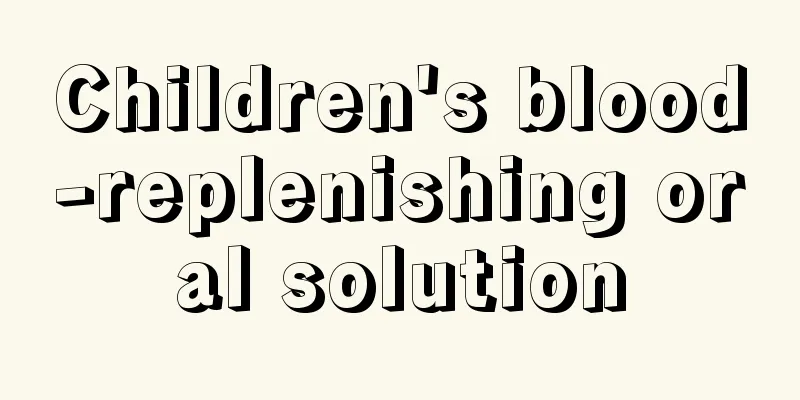What are the symptoms of intellectual disability in children?

|
As we all know, the speed of a child's intellectual development has a great impact on the child's learning, but how do we judge whether a child's intellectual development is slow? Most parents don't fully understand this. In fact, there are 12 manifestations of intellectual retardation in children, the first of which is the inability to reach out and grab things at 9 months old. 1. Can’t reach out to grab things at 9 months If you compare your baby with other babies, you will find that your baby still cannot reach out to get things on his own at 9 months old, and cannot support his weight with his legs when supported by an adult. This indicates that there is something abnormal with the baby and the baby should be taken for a check-up as soon as possible. 2. Abnormal crying Some babies will cry for a long time due to stimulation, but sometimes they need repeated or continuous stimulation to make them cry; some babies cry sharply, while others cry softly and weakly; and some babies don’t like to cry and appear unusually "well-behaved". If parents learn to understand their baby's cry, they will know the hidden health signals. (1) If the baby suddenly screams loudly, without any echo, and the sound starts quickly and ends quickly. This kind of crying combined with other symptoms such as shaking head, straight eyes, staring, drowsiness, irritability, fever, convulsions, etc. may be a brain disease such as purulent meningitis. (2) If the baby suddenly stops crying and becomes overly quiet, this is also an abnormal phenomenon. Because some newborns are too ill to cry, we should pay more attention to careful observation and patiently find out the cause. 3. Poor sucking ability Some babies learn to chew relatively late, and are prone to swallowing difficulties and vomiting when eating solid food. The earliest symptoms shown by babies with intellectual disabilities are often difficulty in feeding, inability to suck, and being particularly prone to spitting up milk. This indicates damage to the nervous system and will affect their intelligence in the future. After the baby starts eating complementary foods when he is six months old, he will have difficulty chewing and feeding, and solid food will be difficult to swallow and may even cause vomiting. 4. Difficulty in standing the head upright and turning the head Some babies cannot hold their heads up or have difficulty turning their heads when they are over 100 days old, and one or both eyes continue to look inward or outward. At this time, parents can give their baby some head-lifting training. If there is no effect, they should take the baby to the hospital for examination immediately and ask the doctor the reason so as to discover the problem as early as possible and receive timely treatment. 5. Sleeping too much and not being able to wake up easily Some babies will remain asleep and are difficult to wake up. Generally speaking, newborns under one month old need about 18 to 20 hours of sleep in a day. You may only be awake for about 3-4 hours a day, which is exactly the state of "sleep after eating". When the baby is 2-3 months old, he needs to sleep 16-18 hours a day; when he is 5-9 months old, he still needs to sleep 15-16 hours; when he is one year old, he needs to sleep about 14-15 hours. If the baby's condition lasts longer than a reasonable period of time, it is best to take the baby to the hospital for a check-up so that problems can be discovered and resolved in a timely manner. 6. Dull expression The baby's expression has always been dull. He only showed a smile after he was 100 days old, and his expression was dull. At 6 months old, he still could not show a natural smile. It is understood that some babies with congenital intellectual disabilities have abnormal facial and body appearance. For example, children with congenital idiocy have eyes that are too wide apart, slanted eyes, flat noses, tongues that often hang outside the mouth, and drooling, which is what people often call an "international face." Children with hydrocephalus have particularly large head circumference, while children with microcephaly have particularly small heads. If you find anything wrong with your baby, consult a doctor immediately. 7. Motor development is 3 months behind normal babies If the baby's motor development, such as lifting the head while lying on the stomach, sitting, standing, walking, etc., lags behind normal children by 3 months or more, and some babies even have unsteady walking, these indicate that the baby's development may be abnormal. 8. The hand-gazing and hand-playing movements still exist after six months Some babies will continue to look at and play with their hands after they are six months old. Their minds are only focused on one thing, they act very dull, and are not interested in things in the outside world. They just play with their hands. This is abnormal, as if they only understand their own world. Parents should pay special attention if they notice this situation. 9. Slow response to the outside world Some babies are slow to respond to external stimuli. At 6 months old, they still cannot look at slowly moving objects above their faces, cannot turn their heads in the direction of sounds, cannot turn over by themselves, and cannot sit steadily without the help of adults such as their parents. This is also a manifestation of mental retardation in babies. 10. Drooling from July to September Babies have the habit of drooling, so mothers will put a bib on their babies. This is because when the baby is 4-5 months old, the addition of complementary foods plays a vital role in the baby's growth. The baby's diet gradually begins to be supplemented with foods containing nutrients such as starch. After the salivary glands are stimulated by these foods, saliva secretion increases significantly. At this time, the baby's mouth is small and shallow, and the swallowing reflex function is not yet perfect. He cannot use swallowing movements to regulate saliva, so as long as there is too much saliva, it will flow out of the mouth. In addition, many babies like to suck their fingers, pacifiers, etc., which also stimulates the secretion of salivary glands and increases saliva. However, if the baby still drools frequently at 7-9 months old and grinds his teeth when awake, parents should pay attention. This may be caused by sequelae of encephalitis, cretinism, or facial nerve paralysis, which lead to dysfunction in regulating saliva. Although the chances of this happening are very low, you should go to the hospital for diagnosis and treatment. 11. Language development lag Some smart babies will babble and imitate adults' speech at 9 months old, but some babies' language development is relatively backward. By 10 months old, they can't babble and their pronunciation is not clear. At this time, mom and dad should learn some tips on how to teach their baby to speak and train their baby to learn to speak. 12. Lack of interest in surroundings Some babies lack interest in the people and environment around them, do not like to interact with others, and lack emotional attachment. In this case, parents should not take it lightly, but should care for the baby more, talk to the baby more, and make the baby more cheerful. At the same time, they should also consult some experts to confirm whether the baby has any problems and let the baby receive timely treatment. |
<<: Why is your baby's head itchy? 5 ways to get rid of dandruff naturally
Recommend
Sleep myoclonus in children
Sleep myoclonus in children is a type of epilepsy...
What to do if a child has a viral cold or fever
Every child will encounter various illnesses duri...
What is the cause of the small hole in the baby's heart?
Babies are a special group because they have poor...
My 9 month old baby can't crawl
For parents with babies, the baby’s growth condit...
What should I do if my child’s buttocks are itchy and red?
The child's anus is itchy and red. This situa...
What happens if a child has follicles in his ovaries?
When a woman reaches puberty, she will have her f...
The dangers of patent ductus arteriosus in children
For children, patent ductus arteriosus may cause ...
The reason why babies sometimes shake their heads
Many people shake their heads. When you shake you...
What to do if your baby is allergic to egg yolk
Everyone knows that babies need to add complement...
What to do if your three-year-old baby has allergies
Babies are very fragile when they are young. Beca...
Why does my 2 month old baby always wake up when sleeping?
A newborn's physical condition is not well de...
What are the reasons for frequent urination in children?
Urination is a very normal physiological phenomen...
What to do if the newborn is hot-tempered?
Everyone knows that babies who eat milk powder ar...
Rehabilitation methods for children with cerebral palsy
Many people are familiar with cerebral palsy. The...
What to do if a 2-year-old child has a fever and convulsions
The status of children in every family can be sai...









